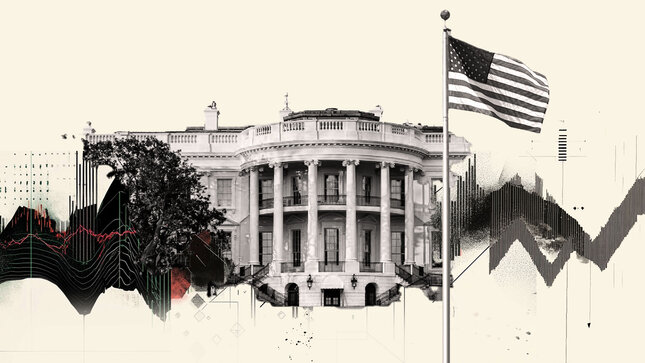The best traders learn from their mistakes and try not to repeat them over and over again. Great traders do stick to trading strategies that perform well and abolish quickly the ones that are losing them money. In this trading essay, I will try to enlist five of the most common trading mistakes that you should at all costs try to escape. They are:
1) Reluctance to get out of losing positions
Let’s start off with the first bad habit that a lot of traders share.
One of the most common trading mistakes is to hold on to a losing position for too long. Traders are ignoring their hard stops and let the losers get into the red zone for too long time. They are hoping that the price will eventually come back to a break-even point. Unfortunately, markets do not work this way. That is why traders should have either psychological or hard stops in place. If not, they are risking losing their capital too fast. You should not take a position too personally! You should be disciplined and control your emotions, so if you notice you are getting too angry with your trading, you should immediately stop (or get out of a position).
2) Shorting when the trend is up
One of the worst trading habits is when you are preoccupied with a bias and go against the natural direction of the market. In other words, you are trying to outsmart the market. In my opinion the best way to trade, no matter short or long-term is to go with the trend. Too much information is definitely going to do more harm than good. Reading all the financial journals and news hubs won’t make you a profitable trader. What you should learn is how to apply price action and go with the trend. Awareness of a personal bad habit is the first step in gaining control over it. You need to be as flexible as possible and don’t take all possible trading signals. You should be sieving through only the best trading signals. It is definitely more complicated than merely having an intuition about the direction of markets.
3) Emotions-based trading
Most of the traders I know do rely on their instincts and much of their trading, especially when it is stressful, is built on efforts to keep emotion under control. Trading to win takes a lot of discipline, persistence and a plan to win. Taking trades only based on hunches instead of careful application of a trading method is what I call emotion-based trading. You should try to stay away from that type of trading at all cost. Some of my students are constantly asking me how to improve their trading results. Apart from the fact that it is almost impossible to teach that, I tell them to erase all emotions. It is easier said/written than done, but once you realise this yourself, you are one step closer to financial freedom and trading success. You should erase thoughts like “I feel lucky”, “today, I am having a good day”, “I lost a lot, better size up”, etc. from your brain. Super-traders don’t grow complacent, but keep aiming to upgrade their game. They center on the process and not just the result.
4) Overattachment to current positions
You should not trade based on what you like and you don’t like. You should trade based on what works and where price action is showing a good risk/reward ratio. Overattachment is another bad habit that I have met in a lot of traders. What they usually do is stay with a current position for too long- no matter whether it is a losing or a winning position- if price is showing that the trend is about to change direction, you should immediately take profits/losses. In the end, the small profit or loss is not what matters- it is the homerun.
5) Selling too soon
One of the most difficult aspects of trading is to know when to take profits. It is not only hard because you don’t know how much more price will rise, but because most of the times you just want to close down a certain amount of pips/dollars. This is where a lot of traders got it wrong. They believe that by just having a 1:3 risk:reward ratio they can make their trading dreams come true. For me a true edge is when you can return multiples of what you have risked- like 5-10-20 times. There is no easy way to do that and even super-experienced traders find it extremely difficult. One of the best ways I have found that works best for me is to look at my P/L. As long as it is constantly showing an increasing figure, it means that there is what more to get out of a trade. But once it starts flattening out or decreasing dramatically, it means that you should start considering getting out. It is not an easy decision, but if you don’t have a proof from the P/L you’d better take your profits. On the other side, you should at all costs escape from selling too short! If the P/L is growing, there is no reason to sell. The only reason would be your greediness or fear. If you want to become a super-trader, you will need to learn how to control those emotions. You just need to hold on…
This material is written for educational purposes only. By no means do any of its contents recommend, advocate or urge the buying, selling or holding of any financial instrument whatsoever. Trading and Investing involves high levels of risk. The author expresses personal opinions and will not assume any responsibility whatsoever for the actions of the reader. The author may or may not have positions in Financial Instruments discussed in this newsletter. Future results can be dramatically different from the opinions expressed herein. Past performance does not guarantee future results.
Editors’ Picks

EUR/USD: Yes, the US economy is resilient – No, that won’t save the US Dollar Premium
Some impressive US data should have resulted in a much stronger USD. Well, it didn’t happen. The EUR/USD pair closed a third consecutive week little changed, a handful of pips above the 1.1800 mark.

Gold: Metals remain vulnerable to broad market mood Premium
Gold (XAU/USD) started the week on a bullish note and climbed above $5,000 before declining sharply and erasing its weekly gains on Thursday, only to recover heading into the weekend.

GBP/USD: Pound Sterling remains below 1.3700 ahead of UK inflation test Premium
The Pound Sterling (GBP) failed to resist at higher levels against the US Dollar (USD), but buyers held their ground amid a US data-busy blockbuster week.

Bitcoin: BTC bears aren’t done yet
Bitcoin (BTC) price slips below $67,000 at the time of writing on Friday, remaining under pressure and extending losses of nearly 5% so far this week.

US Dollar: Big in Japan Premium
The US Dollar (USD) resumed its yearly downtrend this week, slipping back to two-week troughs just to bounce back a tad in the second half of the week.
RECOMMENDED LESSONS
Making money in forex is easy if you know how the bankers trade!
I’m often mystified in my educational forex articles why so many traders struggle to make consistent money out of forex trading. The answer has more to do with what they don’t know than what they do know. After working in investment banks for 20 years many of which were as a Chief trader its second knowledge how to extract cash out of the market.
5 Forex News Events You Need To Know
In the fast moving world of currency markets where huge moves can seemingly come from nowhere, it is extremely important for new traders to learn about the various economic indicators and forex news events and releases that shape the markets. Indeed, quickly getting a handle on which data to look out for, what it means, and how to trade it can see new traders quickly become far more profitable and sets up the road to long term success.
Top 10 Chart Patterns Every Trader Should Know
Chart patterns are one of the most effective trading tools for a trader. They are pure price-action, and form on the basis of underlying buying and selling pressure. Chart patterns have a proven track-record, and traders use them to identify continuation or reversal signals, to open positions and identify price targets.
7 Ways to Avoid Forex Scams
The forex industry is recently seeing more and more scams. Here are 7 ways to avoid losing your money in such scams: Forex scams are becoming frequent. Michael Greenberg reports on luxurious expenses, including a submarine bought from the money taken from forex traders. Here’s another report of a forex fraud. So, how can we avoid falling in such forex scams?
What Are the 10 Fatal Mistakes Traders Make
Trading is exciting. Trading is hard. Trading is extremely hard. Some say that it takes more than 10,000 hours to master. Others believe that trading is the way to quick riches. They might be both wrong. What is important to know that no matter how experienced you are, mistakes will be part of the trading process.
The challenge: Timing the market and trader psychology
Successful trading often comes down to timing – entering and exiting trades at the right moments. Yet timing the market is notoriously difficult, largely because human psychology can derail even the best plans. Two powerful emotions in particular – fear and greed – tend to drive trading decisions off course.


